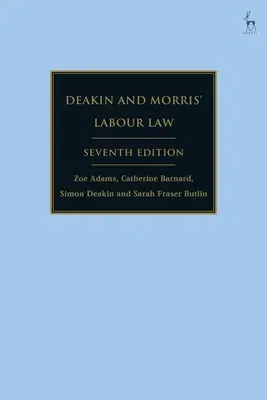Deakin and Morris' Labour Law, a work cited as authoritative in the
higher appellate courts of several jurisdictions, provides a
comprehensive analysis of current British labour law which explains the
role of different legal and extra-legal sources in its evolution,
including collective bargaining, international labour standards, and
human rights. The new edition, while following the broad pattern of
previous ones, highlights important new developments in the content of
the law, and in its wider social, economic and policy context. Thus the
consequences of Brexit are considered along with the emerging effects of
the Covid-19 crisis, the increasing digitisation of work, and the
implications for policy of debates over the role of the law in
constituting and regulating the labour market.
The book examines in detail the law governing individual employment
relations, with chapters covering the definition of the employment
relationship; the sources and regulation of terms and conditions of
employment; discipline and termination of employment; and equality of
treatment. This is followed by an analysis of the elements of collective
labour law, including the forms of collective organisation, freedom of
association, employee representation, internal trade union government,
and the law relating to industrial action.
The seventh edition of Deakin and Morris' Labour Law is an essential
text for students of law and of disciplines related to management and
industrial relations, for barristers and solicitors working in the field
of labour law, and for all those with a serious interest in the subject.

